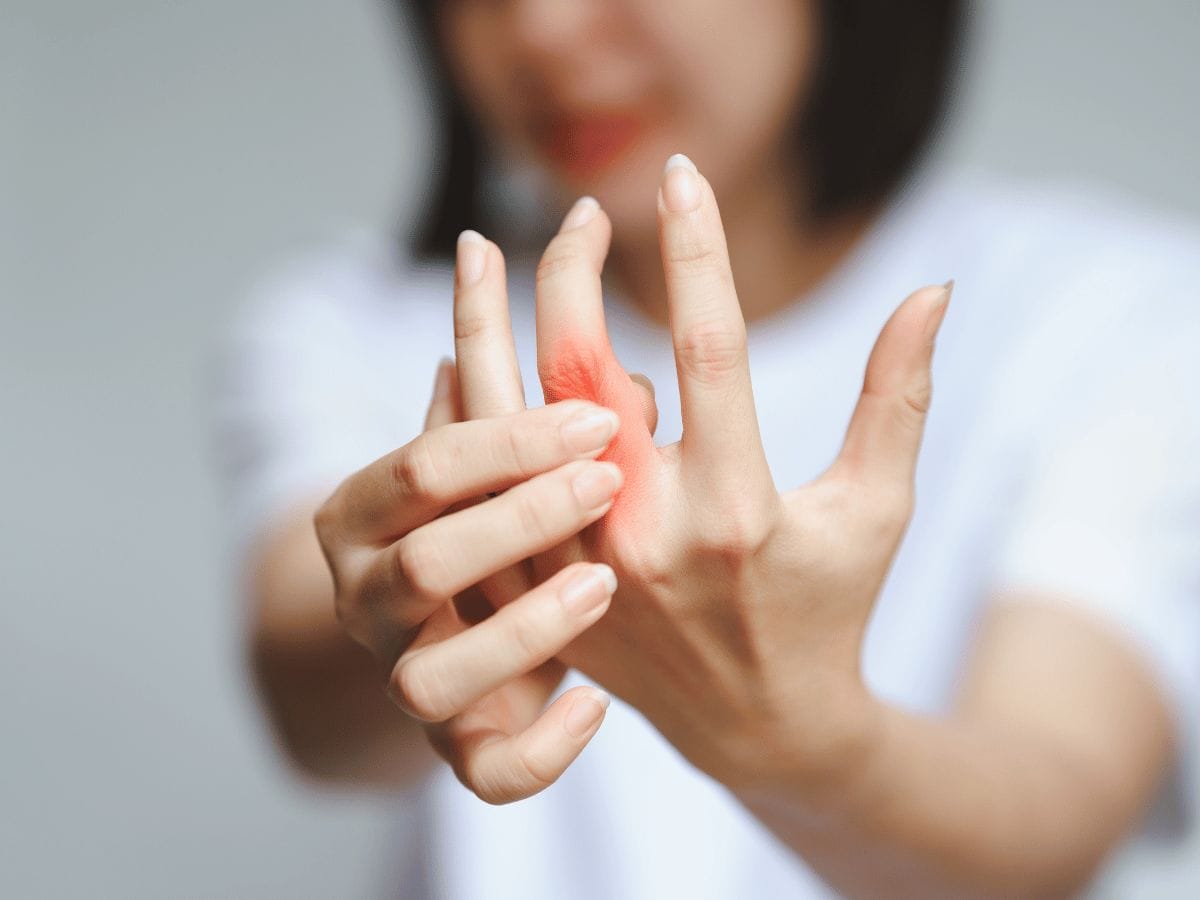
Rheumatoid arthritis (RA) is more than just joint pain. It’s a chronic autoimmune disorder where the body’s immune system, instead of protecting us, mistakenly attacks healthy joint tissue, especially the lining known as the synovium. This leads to inflammation, swelling, and, over time, joint erosion and deformity. Unlike osteoarthritis that develops from wear and tear, RA involves systemic inflammation and can affect organs like the lungs, eyes, and heart.
In the United States, RA affects about 1.5 million adults. Women, especially between ages 30 and 60, are two to three times more likely to be diagnosed than men. Because of its impact on quality of life and long-term function, early diagnosis and proper treatment planning are essential.
While we don’t yet know exactly what triggers RA, we do understand several factors that increase risk:
Interestingly, many people with genetic risk never develop RA unless an environmental or biological stressor flips the switch. This “multi-hit” theory reinforces how important lifestyle risk management can be.
Symptoms of RA can range in intensity and duration but often share several defining characteristics:
We sometimes see non-joint symptoms before joint pain even begins—such as fatigue or eye dryness—making diagnosis tricky in early stages. But it’s these early signs we want people to recognize.
Diagnosing RA is like assembling a puzzle—multiple pieces must fit to confirm the full picture. When patients come in with persistent joint pain and stiffness, we typically begin with:
Combining these results with a thorough clinical exam gives us confidence in an accurate diagnosis. The goal is clear: catch RA early and begin targeted treatment.
Treating RA is not one-size-fits-all. Our goal is to suppress the autoimmune attack, preserve joint health, and improve daily function. Here’s how we approach it:
With ongoing monitoring and treatment adjustments, many patients achieve what we call “remission”—a state with minimal or no disease activity.
Medications are critical, but they’re only part of long-term success. We encourage patients to adopt a holistic care model that includes:
RA impacts more than health—it reshapes lifestyle. Tasks like opening a jar or typing on a keyboard can become challenging. Emotional health is also affected, underscoring the role of mental health support.
Many of our patients in South Florida benefit from patient education workshops, online support communities, and one-on-one counseling. Pairing this with flexible work modifications and movement routines helps restore daily balance.
When it comes to RA, time isn’t just valuable—it’s vital. Joint damage can begin within months of disease onset. That’s why early, aggressive treatment involves:
This team approach transforms patient outcomes. At our South Florida centers, we’re proud to offer this kind of integrative care under one roof.
The future of RA treatment centers on customization and earlier detection:
Research continues at leading institutions, with South Florida hospitals participating in several clinical trials.
Living with RA is easier with the right guidance and community. We recommend:
Together, these resources bring empowerment, knowledge, and hope.
If you or someone you know is experiencing symptoms of persistent joint pain, stiffness, or fatigue, don’t wait. Contact SFL Medical Group today for a complete evaluation and access to our multidisciplinary care team dedicated to restoring your health and quality of life.
RA is an autoimmune condition where the immune system attacks joint linings, unlike osteoarthritis which results from physical wear. RA typically affects both sides of the body and can involve systemic symptoms.
Watch for symmetric joint swelling, morning stiffness lasting longer than 30 minutes, fatigue, and occasional fevers. Early intervention is crucial.
Diagnosis involves blood tests for RF and anti-CCP antibodies, inflammatory markers (ESR and CRP), and imaging like X-rays or MRI to check for joint changes.
Treatment includes DMARDs, biologics, physical therapy, an anti-inflammatory diet, regular exercise, and stress management.
DMARDs slow autoimmune progression and joint damage. Biologics target specific immune pathways, like TNF or IL-6, for more precision therapy.
Yes. Weight-bearing exercises, yoga, anti-inflammatory nutrition, proper sleep, and therapy are essential. Patients also benefit from joint-sparing strategies.
Untreated RA can cause permanent joint damage, deformity, reduced mobility, heart complications, lung disease, and mental health challenges.
While RA can’t always be prevented, avoiding smoking, maintaining a healthy lifestyle, and genetic awareness helps mitigate risks.
Regular follow-ups are essential—every 3 to 6 months or more often during flare-ups—to adjust medications and monitor progression.
Yes. Nationally with the Arthritis Foundation, as well as local South Florida hospitals and wellness programs, offer group support and educational tools.
Your well-being is our top priority. Reach out today to discover how our dedicated team can support your health journey.
Have questions or want to learn more? Use the form below to get started!
Connect with South Florida’s trusted multispecialty care team and take control of your health with compassion and convenience.
©2025 South Florida Multispecialty Medical Group. All Rights Reserved.